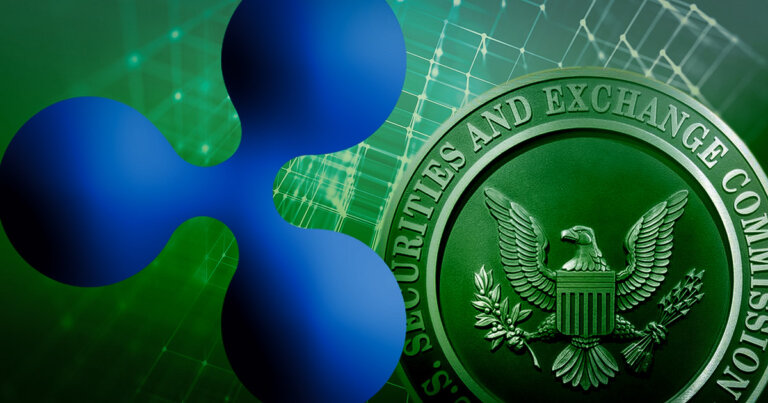 SEC drops charges against Ripple executives
SEC drops charges against Ripple executives SEC drops charges against Ripple executives
Ripple's Brad Garlinghouse and Chris Larsen no longer face charges. However, Ripple and the SEC must settle on remedies for institutional XRP sale violations.

Cover art/illustration via CryptoSlate. Image includes combined content which may include AI-generated content.
The U.S. Securities and Exchange Commission (SEC) agreed to drop charges against two top Ripple executives, according to an Oct. 19 press release.
The SEC previously charged Ripple CEO Brad Garlinghouse and co-founder and executive chair Chris Larsen with aiding and abetting Ripple’s institutional sales of XRP.
Garlinghouse said in a statement:
“For nearly three years, Chris and I have been the subject of baseless allegations from a rogue regulator… instead of looking for the criminals stealing customer funds on offshore exchanges, the SEC went after the good guys – along with our entire company of innovators and entrepreneurs.”
Larsen, meanwhile, called the case an “abuse by the administrative state” and an “attempt to ruin us personally” while also destroying the company itself.
The SEC did not comment publicly but expressed its decision in an Oct. 19 court filing. In one document, the SEC wrote that its claims are now “dismissed in their entirety, without prejudice and without costs or fees to either party.”
In another document, the agency said that its stipulated and voluntary dismissal removes the need for a trial that would otherwise have taken place in April.
Ripple case ongoing
The dismissal does not fully conclude the SEC’s case against Ripple, which concerns the actions of Ripple as a corporation — not just the actions of its individual members.
Ripple obtained partial victory around July 13 when a judge ruled that the firm’s programmatic sales of XRP and certain other distributions did not violate securities laws. Ripple itself affirmed this victory on July 19 and explained that on-exchange sales of XRP, sales of XRP by executives, and transactions involving XRP are not securities.
Starting in August, the SEC made an attempt to appeal against Ripple’s initial win concerning its programmatic sales of XRP. However, in October, the judge ultimately rejected the SEC’s appeal request on Oct. 3, drawing that part of the case to a close.
The judge’s original ruling nevertheless ruled that Ripple’s sales to institutional investors constituted securities. Ripple and the SEC must still determine the appropriate remedies for violations related to those institutional sales, according to the latest filing.


















































































































